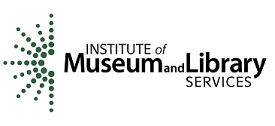Public Libraries Respond to the Opioid Crisis with Their Communities

The opioid epidemic was declared a national public health emergency in 2017, and the situation worsened due to the 2020 COVID pandemic. Provisional data from the CDC National Health Statistics Center show that from September 2020 to September 2023, opioid overdose deaths in the US increased by 19%, from 88,879 to 105,303. As community anchor institutions, public libraries are leveraging their assets in response to this crisis.
To aid staff at public libraries in determining how their library can address opioid use disorder in their community, WebJunction has developed the “Opioid Crisis Support Kit for Public Libraries.” This resource will help strengthen libraries—and, more broadly, the communities they serve—as the nation continues to struggle with the opioid crisis.
The Support Kit was tested by staff in 15 public libraries across the US and enhanced by their feedback. The content includes pragmatic strategies, tools, and other resources to help libraries—including those in rural areas—as they determine their specific communities' needs and define the roles and activities their library is most suited to carry out. The kit will help libraries assess their staff strengths and capacity, identify key partners with whom to collaborate or coordinate, and plan and implement programming and services that support local needs.
Available now
The "Opioid Crisis Support Kit for Public Libraries" is in Word document format, so that you can save your work, thoughts, and ideas. There are videos, readings, and activities specific to library work that you can learn from and explore.
Webinar recording
On May 16, 2024, we hosted a free webinar for library staff to learn more about the Support Kit, how it was created, and how to use it. Library staff who participated in the early testing and who were able to implement new programs to meet local needs also share their work.
Preceding research
This initiative builds on research conducted by OCLC and the Public Library Association on the IMLS-funded study, Public Libraries Respond to the Opioid Crisis with Their Communities (2018-20). That project included eight case studies on how libraries were responding to the opioid crisis with their communities, and a Call to Action.
The program is made possible by support from OCLC and through a National Leadership Grant
(project number LG-250082-OLS-21) from the Institute of Museum and Library Services.

Most recently added
Leading with compassion at the Charles County Public Library
Publish Date: News / 31 December 2024
At the Charles County Public Library (CCPL) in Maryland, staff started looking at the opioid crisis through a lens of understanding and empathy to serve their community. Karen Wilson, the Peer Outreach Coordinator at CCPL, shared that learning about ...
Supporting harm reduction at the library
Publish Date: News / 11 June 2024
On the shores of the Garden State, staff at the Atlantic City Free Public Library (ACFPL) started a program to provide harm reduction resources and support on a range of health-related needs, including opioid misuse. The project was led by Melissa Mc...
Reducing stigma toward opioid use in North Bend
Publish Date: News / 11 June 2024
Providing the space and resources for a community to find both accurate and timely information is core to public library work. One way that this can be accomplished includes engaging with subject matter experts and partners to offer programming and o...
Supporting healthy communities: Public library responses to the opioid crisis
Publish Date: Webinar / 16 May 2024
Learn about the new “Opioid Crisis Support Kit for Public Libraries” with information and strategies for library staff to support individuals and families affected by substance misuse.
Books, programming, resources: Helping patrons through the opioid crisis
Publish Date: News / 16 June 2023
The opioid crisis which has crashed through American communities has brought patrons to public libraries seeking information about opioids and addiction. This collection of resources can help you connect patrons to the information that they need to s...
